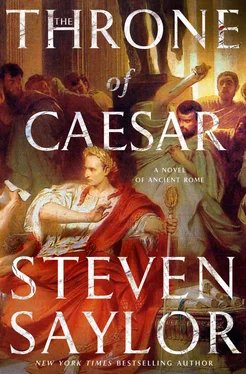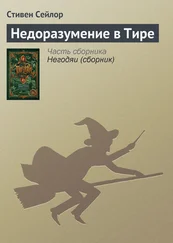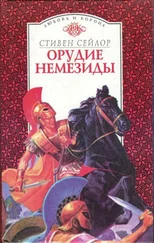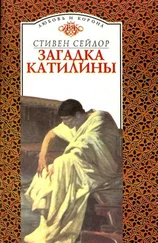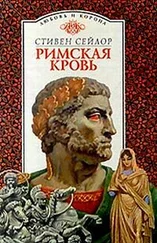Стивен Сейлор - The Throne of Caesar
Здесь есть возможность читать онлайн «Стивен Сейлор - The Throne of Caesar» весь текст электронной книги совершенно бесплатно (целиком полную версию без сокращений). В некоторых случаях можно слушать аудио, скачать через торрент в формате fb2 и присутствует краткое содержание. Год выпуска: 2018, Издательство: St. Martin's Press, Жанр: Исторический детектив, на английском языке. Описание произведения, (предисловие) а так же отзывы посетителей доступны на портале библиотеки ЛибКат.
- Название:The Throne of Caesar
- Автор:
- Издательство:St. Martin's Press
- Жанр:
- Год:2018
- ISBN:нет данных
- Рейтинг книги:5 / 5. Голосов: 1
-
Избранное:Добавить в избранное
- Отзывы:
-
Ваша оценка:
- 100
- 1
- 2
- 3
- 4
- 5
The Throne of Caesar: краткое содержание, описание и аннотация
Предлагаем к чтению аннотацию, описание, краткое содержание или предисловие (зависит от того, что написал сам автор книги «The Throne of Caesar»). Если вы не нашли необходимую информацию о книге — напишите в комментариях, мы постараемся отыскать её.
The Throne of Caesar — читать онлайн бесплатно полную книгу (весь текст) целиком
Ниже представлен текст книги, разбитый по страницам. Система сохранения места последней прочитанной страницы, позволяет с удобством читать онлайн бесплатно книгу «The Throne of Caesar», без необходимости каждый раз заново искать на чём Вы остановились. Поставьте закладку, и сможете в любой момент перейти на страницу, на которой закончили чтение.
Интервал:
Закладка:
Along with the senators were all the priests of the state religion and the Vestals, absent their leader, the Pontifex Maximus.
Then came the dead man’s family and household, which included not only blood relations but also many of his slaves and freedmen, hundreds of stern-faced men and weeping women all garbed in black. After they passed, Cinna and I joined the general citizenry who followed the procession as it made its way past the crowded temple steps and altars and statues of the Forum.
At last the procession poured into the vast open area before the Rostra, the speaker’s platform from which politicians harangued the crowd. Here the body would be placed in its temporary shrine while Antony spoke. From somewhere there appeared hundreds of armed soldiers, veterans of Caesar’s campaigns who had flooded the city since his death. They formed a sort of honor guard around the body, banging their swords against their shields and shouting Caesar’s name. Many openly wept.
With Antony as the chief bearer, the ivory couch with Caesar’s body was carried up the steps at the back of the Rostra, then placed inside the golden shrine. Here a memorable illusion was created, as if on a stage. Temples are homes for gods, and many contain a gigantic statue of the deity. This miniature Temple of Venus was sized in such a way that the body of Caesar fit quite nicely inside—as if he were a deity no less than Venus, and the temple was his home as well as hers .
If this was a subtle prod to the imagination of the crowd, there followed a more obvious one. The wax effigy of Caesar was detached from the wagon and carried up the steps by two men dressed in black. The effigy was fitted onto a pole in front of the shrine, for all to see. Antony gazed at it in awe, as if seeing it for the first time. He reached out to touch the torn, blood-soaked garment, then drew back his trembling fingers as if appalled, even frightened—a large, theatrical gesture calculated to draw the attention of the multitude gazing at the bloody relic. He was rewarded with a cacophony of wailing and sobbing and a thunderous banging of swords on shields. Caesar himself seemed to be standing on the platform next to Antony, strangely mute and motionless, his waxen face impassive, his garments caked with blood.
Antony might be a fine orator, but he was no master of stage illusions. In the eerie presentation of Caesar’s effigy on the platform, which made the dead man seem a spectator at his own funeral, again I saw the hand of Fulvia.
XLIII
Even before Antony began his speech, I felt uneasy.
Somehow, the four of us—Cinna and myself, with Davus and Cinna’s bodyguard flanking us—had ended up in the middle of the crowd, surrounded by thousands of people on all sides. I would have preferred to be on the outskirts, with one eye on the speaker’s platform and the other on the nearest route to safety.
“So many hoods,” I murmured, looking around.
“What did you say?” asked Cinna.
“So many men wearing hoods. You can’t properly see their faces.”
“Perhaps they don’t want to be seen weeping.”
“Perhaps. But in my experience, in a crowd such as this, some men wear hoods so they won’t be recognized, in case the opportunity arises to do a bit of mischief.”
“This crowd seems to me more grief-stricken than angry.”
“Yes,” I said. “So far. As one senator to another, how would one go about introducing a law to ban the wearing of hoods in any public assembly?”
“Gordianus, surely you don’t want to become one of those senators constantly thinking up new ways to curtail the liberties of the people. ”
“Such a law would free the people.”
“From what?”
“From the fear of men in hoods who murder and rape with impunity.”
Cinna rolled his eyes. “A hood is just a hood, Gordianus. Hoods don’t kill people. Knives do.”
“Or hooded men with knives.”
“The men who killed Caesar weren’t hooded, were they? They were proud to show their faces. They wanted us to see them, wanted everyone to see their bloody knives—remember how they held them up as they marched through the streets? They wanted Caesar himself to see their faces as they stabbed him, again and again.” Cinna shuddered at the memory. “Well, Senator Gordianus, I shall look forward to debating the merits of your proposal to ban hoods in the Forum, when and if the Senate resumes normal business. But I think Antony is about to begin.”
A hush fell on the crowd. All eyes turned to the speaker’s platform.
Antony’s speech has since become the stuff of legend. Like most legends, it has been imperfectly remembered and liberally embellished, and multiple versions exist. Often, when some particularly memorable phrase is uttered, someone remarks that it comes from Antony’s eulogy. To presume that Antony delivered one sparkling epigram after another does his speech, and especially his performance, an injustice. It began as a very ordinary eulogy, but it turned into something quite different.
He established first and foremost his qualifications to deliver the dead man’s eulogy. Antony was not a relative either by blood or by marriage. But he was Caesar’s heir—as were we all, he said, every one of us who had gathered there in the Forum.
Antony held up a scroll that he said was Caesar’s will—not a copy, but the document itself. He held it delicately and at arm’s length, as if it were some sacred text, like a Sibylline Book. Gaius Octavius, he said, was named as Caesar’s principal heir, along with Caesar’s other two grandnephews, Lucius Pinarius and Quintus Pedius. To act as guardians of these heirs, and to be named as heirs in their stead if the princ ipals could not for any reason inherit, were two of Caesar’s most trusted and greatly esteemed friends, men whom he loved as sons or brothers—Antony himself, and one other.…
Antony seemed to be choked with emotion, unable to speak.
“Who else?” people cried. “Who is the other?”
Antony turned his gaze from the crowd to the shrine in which lay Caesar’s body. He seemed almost to be speaking to himself, but his trained orator’s voice reached my ears clearly. “I find it hard to speak his name—considering what’s happened. Certainly Caesar never foresaw … such a betrayal.…”
“Surely this isn’t part of the written eulogy,” said Cinna under his breath.
“A stage direction scribbled in the margin by Fulvia?” I suggested.
“His name,” said Antony, “is Decimus Brutus. You all know him. You know of his service to Caesar, and Caesar’s reward to him—the governorship of Gaul.”
“Scandalous!” someone near me shouted. “The ingrate!”
“He should be stripped of his office!” shouted another.
“They should all be stripped of their offices, the men who killed him!” cried another. There were many other outbursts from the crowd.
Antony gestured for silence. “We are here to bury Caesar!” he reminded us. The crowd grew quiet, except for the sounds of weeping, which never ceased.
“Caesar’s friend, Caesar’s colleague, Caesar’s heir—that is why I stand before you today, chosen not just by the Senate but also by Caesar’s widow to say a few words of remembrance and admiration. And gratitude! No heir should ever forget to acknowledge gratitude, and as I said, we are all of us Caesar’s heirs. In this will…” He again held the scroll up for all to see. “In this will, first of all, for the free enjoyment of every Roman and for generations to come, he bequeaths his justly famous gardens outside the city. All have heard of those gardens, but few have seen them. I know them well, and let me tell you, what Caesar created there is a man-made marvel worthy to be ranked with the Seven Wonders of the World, so perfect and tranquil and divinely inspired is that place. In years to come, when you stroll with your loved ones amid those sweet-smelling flowers and magnificent statues, when you marvel at the views, each more breathtaking than the last, pause and remember the genius of the man who created such a place, and the generosity of the man who gave it to you.”
Читать дальшеИнтервал:
Закладка:
Похожие книги на «The Throne of Caesar»
Представляем Вашему вниманию похожие книги на «The Throne of Caesar» списком для выбора. Мы отобрали схожую по названию и смыслу литературу в надежде предоставить читателям больше вариантов отыскать новые, интересные, ещё непрочитанные произведения.
Обсуждение, отзывы о книге «The Throne of Caesar» и просто собственные мнения читателей. Оставьте ваши комментарии, напишите, что Вы думаете о произведении, его смысле или главных героях. Укажите что конкретно понравилось, а что нет, и почему Вы так считаете.
